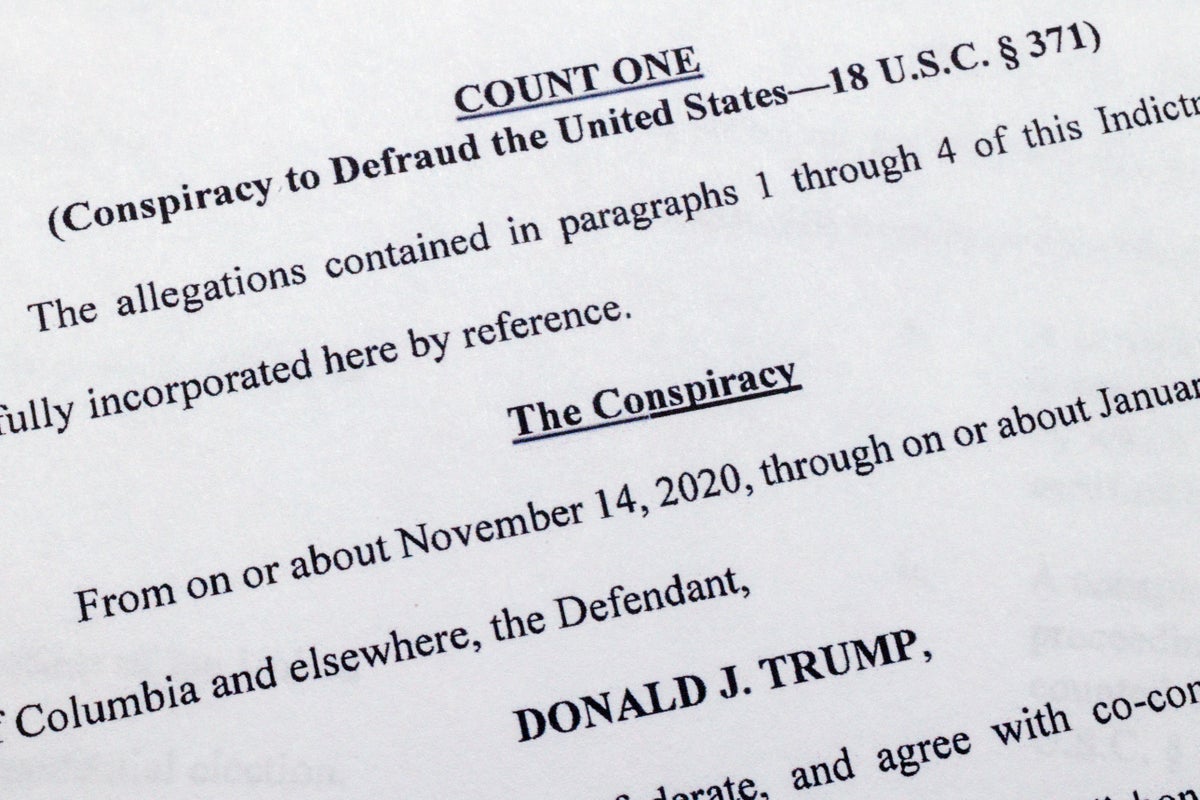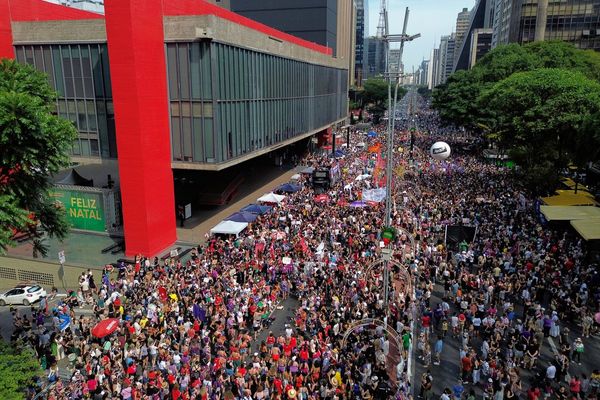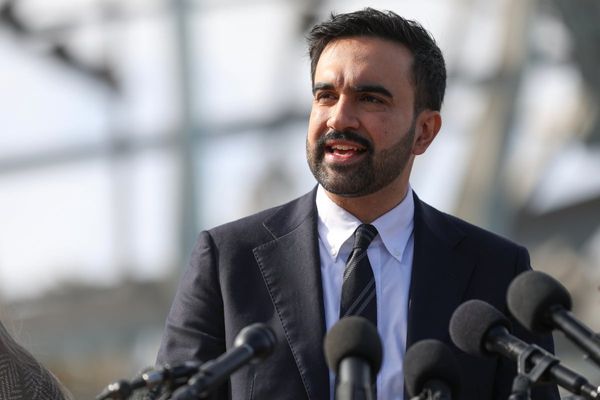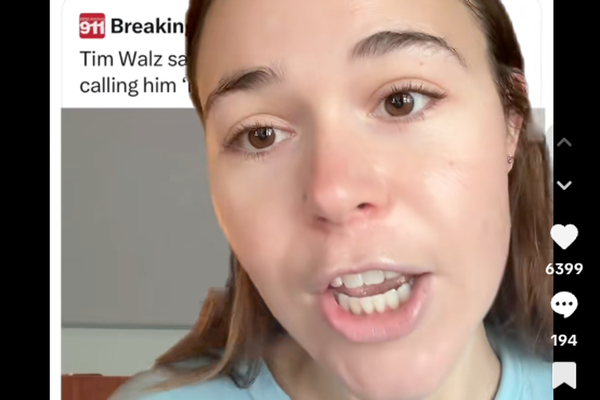
The indictment of Donald Trump on Tuesday marks the first time that the former president has been formally held accountable for his efforts to overturn his 2020 election defeat. And it adds new details to what was already known about his actions, and those of his key allies, in the weeks leading up to the violent Jan. 6, 2021 insurrection.
The newest charges — Trump's third criminal indictment this year — include conspiracy to defraud the United States government and conspiracy and obstruction of an official proceeding, the congressional certification of President Joe Biden's victory. It describes how Trump repeatedly told supporters and others that he had won the election, despite knowing that was false, and how he tried to persuade state officials, his own vice president and finally Congress to overturn the legitimate results.
Due to the “dishonesty, fraud and deceit” by Trump and some of his closest allies, the indictment says, his supporters “violently attacked the Capitol and halted the proceeding.” In the attack, his supporters beat and injured police officers and broke through windows and doors, sending lawmakers running for their lives.
Some takeaways from Tuesday's indictment:
TRUMP KNEW
As Trump schemed to overturn the 2020 election, many of his aides and allies were under no illusion that Trump — a longtime provocateur — had actually won.
Some aides directly refuted conspiracy theories stirred by Trump and his lawyer, former New York Mayor Rudy Giuliani. Others told him point blank he had lost.
“There is no world, there is no option in which you do not leave the White House (o)n January 20th,” a unnamed deputy White House counsel told Trump on Jan. 3, according to the indictment. Another wrote in an email: “I’ll obviously hustle to help on all fronts, but it’s tough to own any of this when it’s all just conspiracy s--- beamed down from the mothership.”
But Trump continued to lie about the outcome of the election, even after being warned of his false statements by top government officials — citing thousands of dead voters in Georgia, an overcount in Pennsylvania and tens of thousands of noncitizen voters in Arizona, for example. Those theories had been disputed by state and federal officials and even his own staff.
At the same time, Trump privately acknowledged his loss. After the chairman of the Joint Chiefs of Staff urged Trump to not take action on a national security issue, Trump agreed, according to the indictment.
“Yeah, you’re right, it’s too late for us,” Trump said during a Jan. 3 meeting. “We’re going to give that to the next guy.”
All the while, he repeatedly tweeted and encouraged his supporters to come to Washington on Jan. 6.
PENCE’S MEMOS
The indictment includes new details from former Vice President Mike Pence, who had fought efforts to answer questions about his role in presiding over the congressional certification.
Prosecutors cite Pence's “contemporaneous notes" about his interactions with Trump as the former president tried to convince him to delay or reject the legitimate election results on Jan. 6.
The indictment lists several conversations between Trump and Pence in those weeks, including some that were previously unknown. On Dec, 25, Pence called Trump to wish him a Merry Christmas, prosecutors said. But Trump "quickly turned the conversation to January 6 and his request that the Vice President reject electoral votes that day.” The vice president pushed back, telling Trump he didn't have the authority.
In another of the calls, on Jan. 1, Trump told Pence, “You’re too honest,” according to the indictment.
THE CO-CONSPIRATORS
The indictment alleges Trump enlisted six people to help him try to overturn the 2020 election. The six people are not explicitly named, but the indictment includes details that make it possible to identify some of them.
As “Co-Conspirator 1” and “Co-Conspirator 2," lawyers Rudy Giuliani and John Eastman are quoted from their remarks at the “Stop the Steal” rally prior to the riot urging Pence to throw out the votes of valid electors.
A third lawyer, Sidney Powell, named as “Co-Conspirator 3,” filed a lawsuit in Georgia that amplified false or unsupported claims of election fraud. The indictment quotes Trump as privately conceding Powell’s claims sounded “crazy.”
Jeffrey Clark, a Justice Department official who championed Trump’s false claims of election fraud, is described as “Co-Conspirator 4.”
There are no known charges against the listed co-conspirators.
Giuliani aide Ted Goodman said in a statement that “every fact” the former New York City mayor had “establishes the good faith basis President Donald Trump had for the actions he took during the two-month period charged in the indictment.”
Eastman, Powell, and a representative for Clark did not immediately return requests for comment.
CONGRESSIONAL INSPIRATION
Much of the evidence in the indictment — including repeated efforts by White House advisers to tell Trump that he lost the election — was first laid out by the Democrat-led House Jan. 6 committee, which disbanded in January after an 18-month investigation into Trump’s role in the insurrection and his efforts to overturn the election.
In its final report issued in December, the committee said it was making several so-called criminal referrals for Trump to the Justice Department, including obstruction of an official proceeding and conspiracy to defraud the United States.
A criminal referral from Congress is not binding, but it is a formal notification from Congress to the Justice Department that lawmakers believe they have found criminal activity.
The panel’s final report asserted that Trump criminally engaged in a “multi-part conspiracy” to overturn the results and failed to act to stop his supporters from attacking the Capitol.
TRUMP'S MOUNTING LEGAL BILLS
The sheer number of investigations, criminal cases and lawsuits brought against Trump are unprecedented for a former president. The same could be said for the tens of millions of dollars in legal fees paid out to attorneys representing him and his allies, straining the finances of his campaign.
An Associated Press analysis of recent fundraising disclosures shows Trump’s political committees have paid out at least $59.2 million to more than 100 lawyers and law firms since January 2021.







